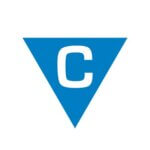Home » CELLECT Laboratories Enhances Cervical Cancer Screening through Nanotechnology-Infused Menstrual Products
CELLECT Laboratories Enhances Cervical Cancer Screening through Nanotechnology-Infused Menstrual Products

Pap tests are often dreaded by many women due to the discomfort and awkwardness associated with the procedure, leading to delayed or avoided cervical cancer screenings. In response to this issue, a Waterloo-based startup, CELLECT Laboratories, aims to revolutionize cervical cancer screening through innovative technology utilizing nanotechnology and menstrual blood. Co-founded by CT Murphy, a Waterloo Engineering alum, and Ibukun Elebute, CELLECT is developing a non-invasive screening method that could potentially replace traditional Pap tests. The company’s innovative approach involves using menstrual products, such as pads, tampons, or menstrual cups, embedded with a patented nanomaterial designed to collect and preserve cervical cells and DNA.
Murphy’s journey into this field was propelled by a personal experience during her studies in nanotechnology engineering, where a painful Pap test inspired her to seek out a more comfortable alternative. What initially began as a fourth-year capstone project has evolved into a promising enterprise, having received recognition and support through programs like WIN-Velocity and Velocity's Up Start and Cornerstone initiatives. Now, CELLECT is gearing up to raise funding aimed at scaling their technology and bringing their product to market.
The necessity for such innovation is underscored by the alarming rise in cervical cancer incidence among Canadian women, which has been increasing at a rate of 3.7% annually since 2015. This is the first significant rise in cervical cancer rates observed since 1984, despite the existence of provincial screening programs. The low uptake of screenings poses a significant risk, as early detection is critical, and barriers to testing could lead to missed warning signs. By making the screening process easier, more frequent, and less invasive, CELLECT's solution has the potential to save lives.
Additionally, CELLECT's innovation addresses a long-ignored aspect of women’s health: menstrual blood, which contains valuable diagnostic information yet has faced stigmatization and lack of research attention in medical fields. Elebute is keen to change this narrative, highlighting the potential diagnostic benefits of menstrual blood.
Situated within a nurturing entrepreneurial ecosystem in the Waterloo Region, CELLECT Laboratories benefits from various local programs, incubators, and accelerators. Both co-founders are currently expanding their expertise—Murphy is developing the product’s intellectual property while pursuing a Master’s in Chemical Engineering, and Elebute is working on a Master’s in Business, Entrepreneurship, and Technology. The supportive nature of the Waterloo tech community is a central reason for relocating there, according to Elebute, who appreciates the focus on supporting women entrepreneurs and Black founders.
However, the path of scaling a health tech venture is fraught with challenges, particularly in navigating regulatory requirements and engaging with investors in a predominantly male funding landscape. In 2023, female-founded companies received only around 2% of total venture capital funding in the U.S., which poses significant hurdles for women-led health startups. Elebute stresses the importance of female representation in discussions about women’s health to attract necessary investment and support.
In summary, CELLECT Labs stands at the forefront of transforming cervical cancer screening through innovative technology utilizing menstrual products. They embody a commitment to addressing significant gaps in women’s health, driven by personal experience and supported by a collaborative tech ecosystem, all while advocating for increased investment and recognition of women entrepreneurs in healthcare.
Communitech
https://communitech.ca
"Communitech helps tech-driven companies start, grow and succeed. Communitech was founded in 1997 by a group of entrepreneurs committed to making Waterloo Region a global innovation leader. At the time it was crazy talk, but somehow this community managed to pull it off. Today, Communitech is a public-private innovation hub that supports a community of more than 1400 companies — from startups to scale-ups to large global players. Communitech helps tech companies start, grow and succeed in three distinct ways: - Communitech is a place – the center of gravity for entrepreneurs and innovators. A clubhouse for building cool shit and great companies. - Communitech delivers programs – helping companies at all stages with access to capital, customers and talent. We are here to help them grow and innovate. - Communitech partners in building a world-leading ecosystem – making sure we have all the ingredients (and the brand) to go from a small startup to a global giant."


